Although winter is one of the best times to look for tracks and footprints in the countryside, you can look anytime – especially after wet weather. On your next walk, turn your gaze to the ground and you'll spot evidence all around you, from the pronounced claw prints of a mink and the webbed feet of a gull, to the interdigital pad of a badger.
Muddy paths, riverbanks and woodlands are a great place to spot animal tracks, while winter snows create a fresh canvas for footprints, especially in open fields and along country roads and farm tracks.
Learn how to identify animal tracks in the British countryside this winter with our handy illustrated wildlife guide.
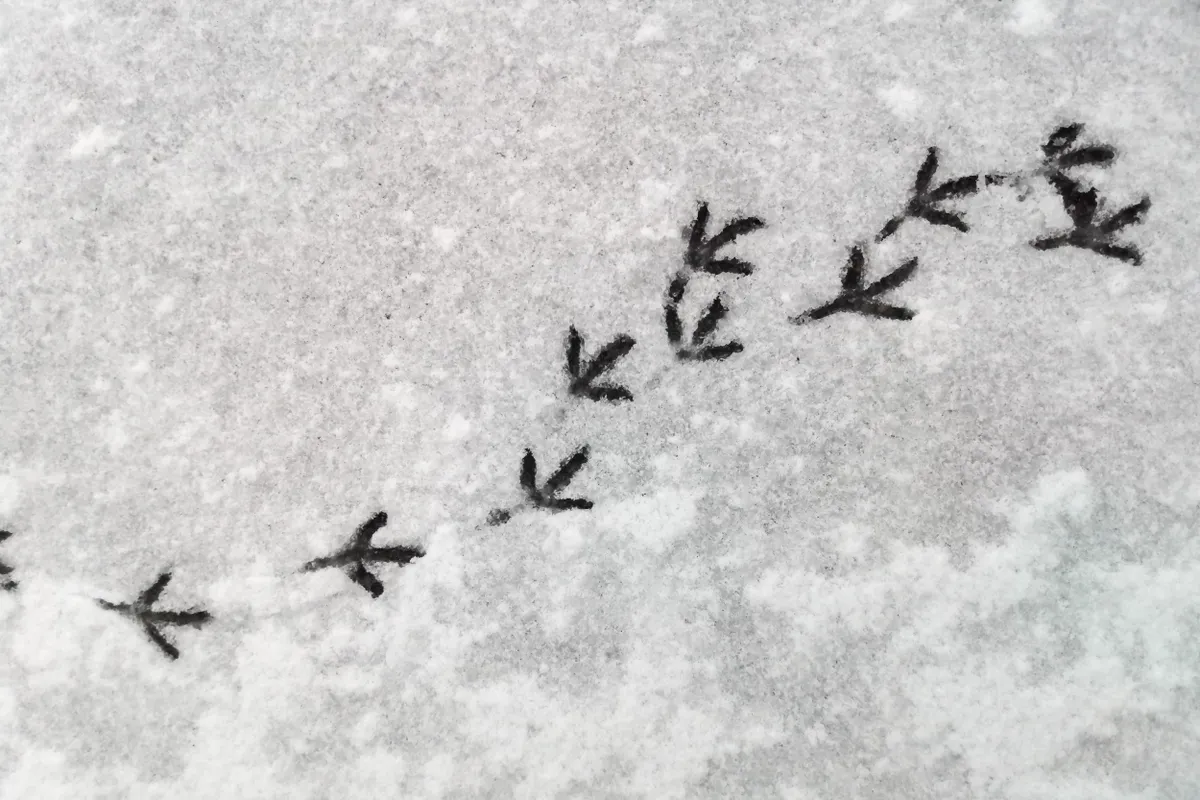
How to find animal tracks
Animal tracks are one of the first signs of wildlife (other than seeing or hearing the creature, which can be challenging) which can give us a vital clue on the species we might find in the area. These signs can play an important role in wildlife conservation and are fun to find.
You need a bit of good luck and patience to find animal tracks as they may not be instantly obvious. Visiting a local woodland or park after rain when the ground is muddy or after snow is a good time to look as they will be more easily visible. Take your time to slowly wander and don't be afraid of crouching down for a better look at the edges of undergrowth.
To find out what animal species visit your garden each night, leave a tray filled with sand and see what prints are left behind in the morning.
How to identify animal tracks
Otter tracks
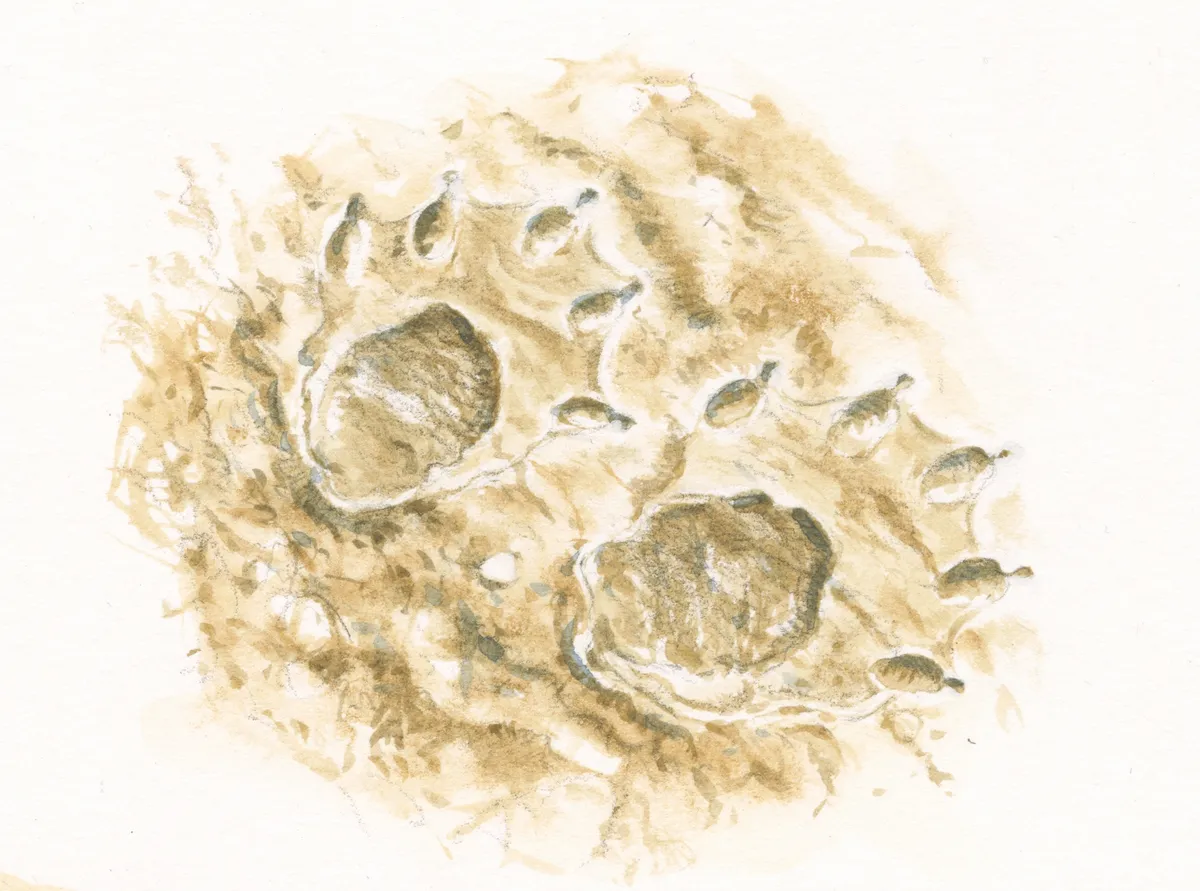
Otter tracks are easy to spot if webbing is visible. They are round in shape, with five toe prints arcing around a large inter-digital pad. Short claws project directly from the digits. 6-8.5cm long, 6cm wide.
More winter inspiration:
Roe deer tracks
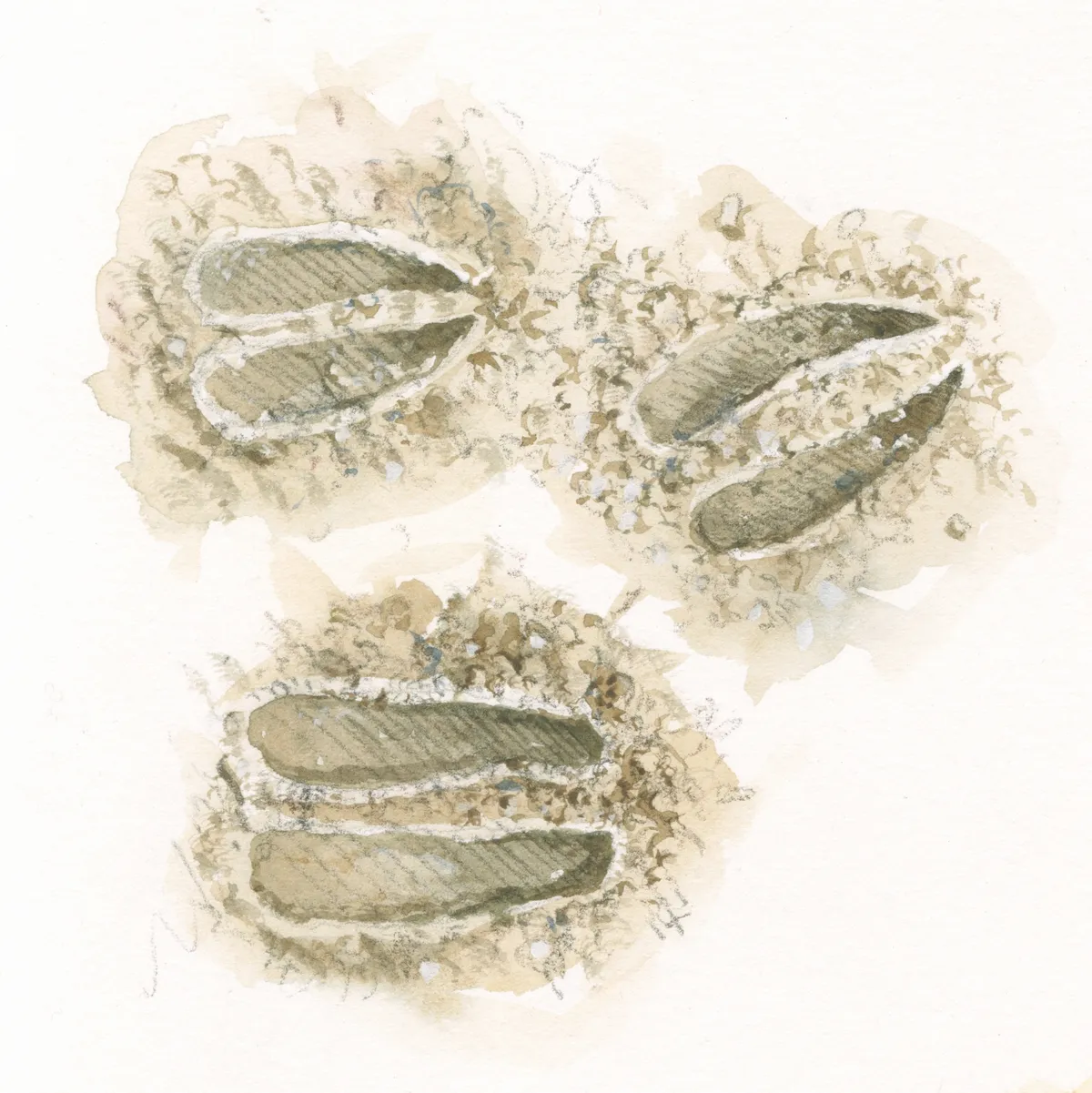
Each roe deer foot has two slender and sharply pointed parallel cleaves. All deer species are rather similar, differing in size and, only very subtly, in shape. 4.5cm long, 3.5cm wide.
- British deer guide: how to identify and best places to see
- Red deer species guide: how to spot, where to see and when they rut
Badger tracks
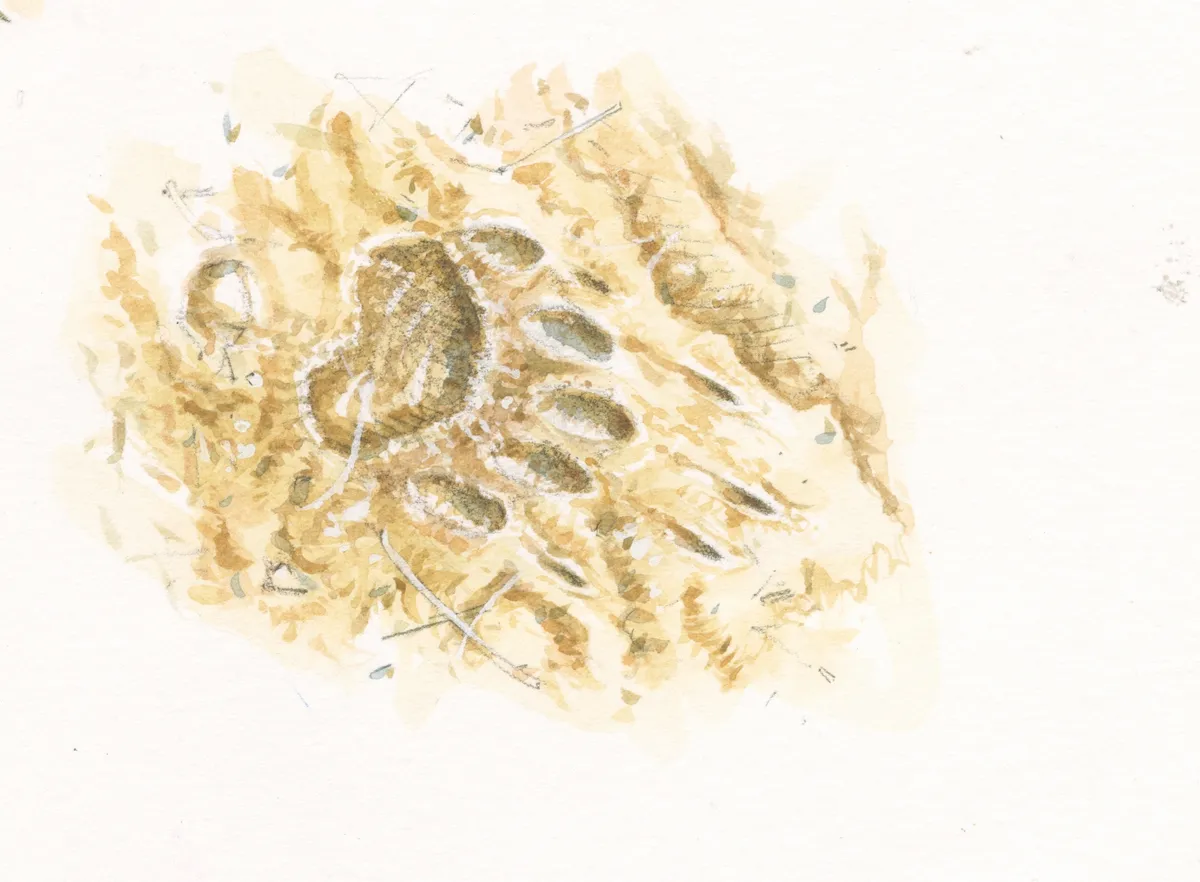
Badger tracks can sometimes look like a small human handprint. All five toes radiate in front of the large interdigital pad. Long claws leave marks well in front of the digits. 6cm long, 5-5.5cm wide.
Fox tracks
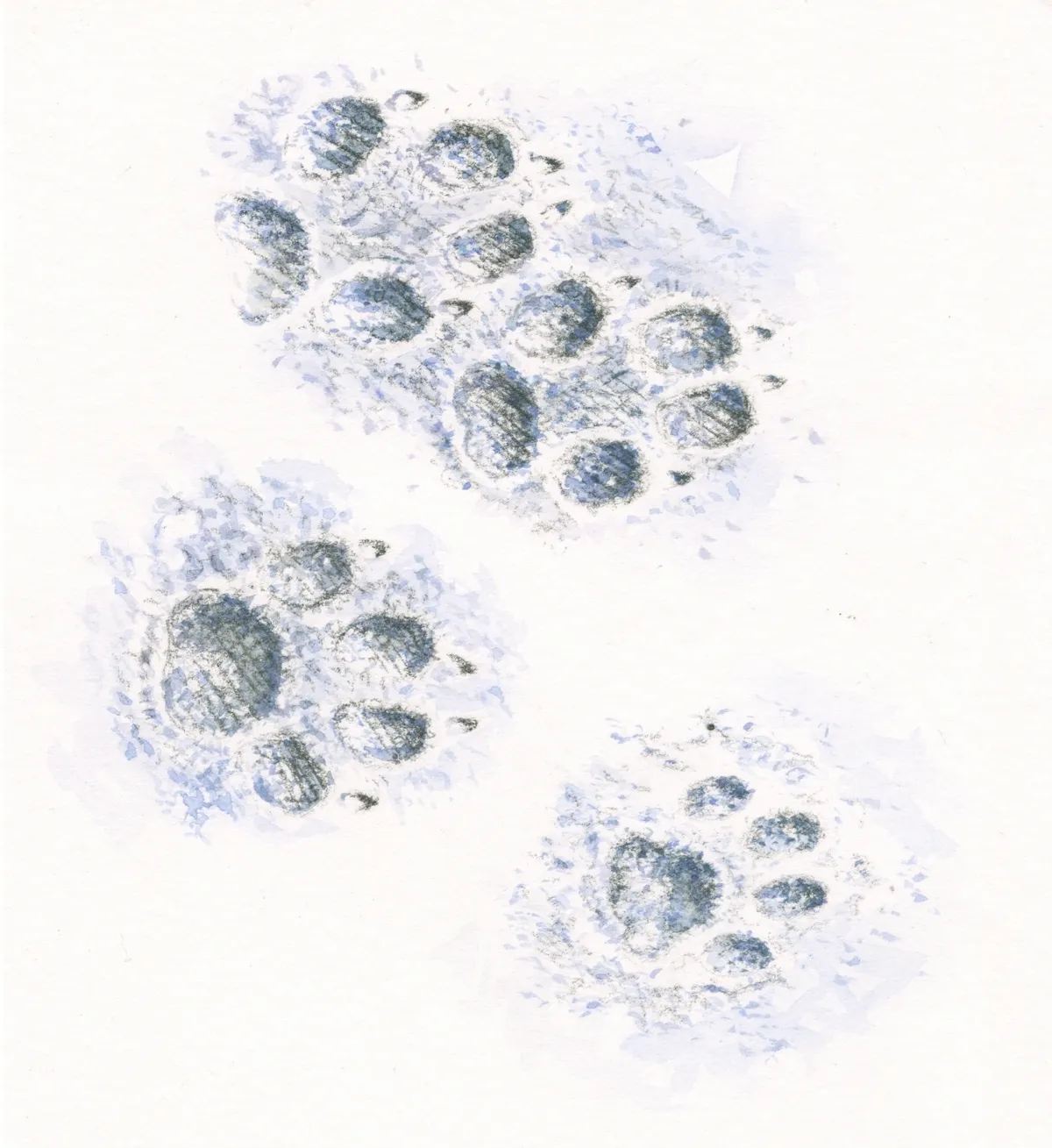
Fox prints show four distinctly oval toes, two of which are obviously in front. The back print, the interdigital pad, is the same size as the rest. 5-7cm long, 4-4.5cm wide.
- Five of the best spots for urban wildlife in the UK
- Britain's urban wildlife: species, identification, how to photograph and where to see
Gull tracks
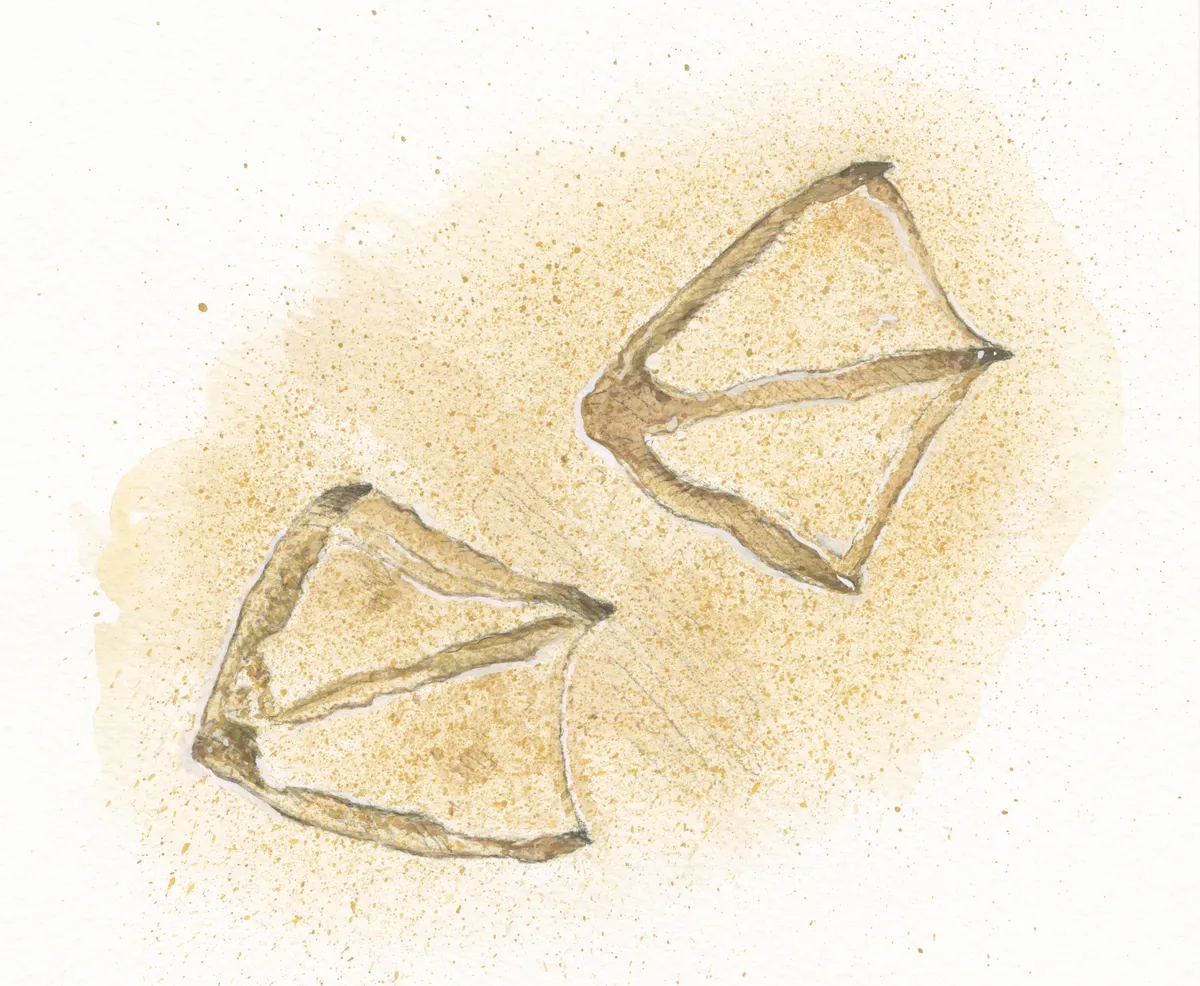
The three front toes are joined by webs with a straight front edge. The toes diverge in a straight line. Note the claws projecting from the toes. 3-6cm long (species vary).
Pheasant tracks
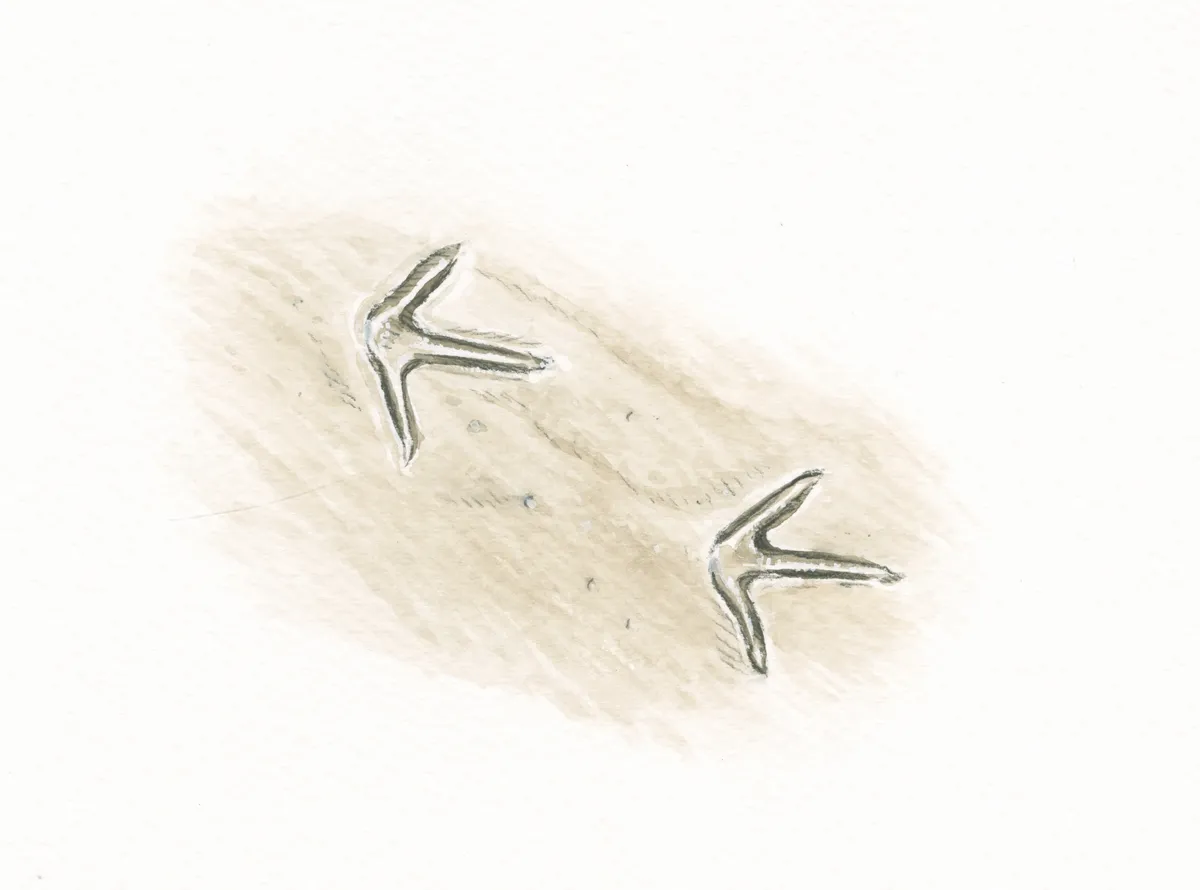
Birds tend to leave prints that look like arrowheads. The pheasant is large and heavy, so its print is clear and even. Found in farmland and woodland. After spotting their prints, get to know the pheasant even better by collecting one of their feathers and drawing it. 6-8cm long.
Rat tracks
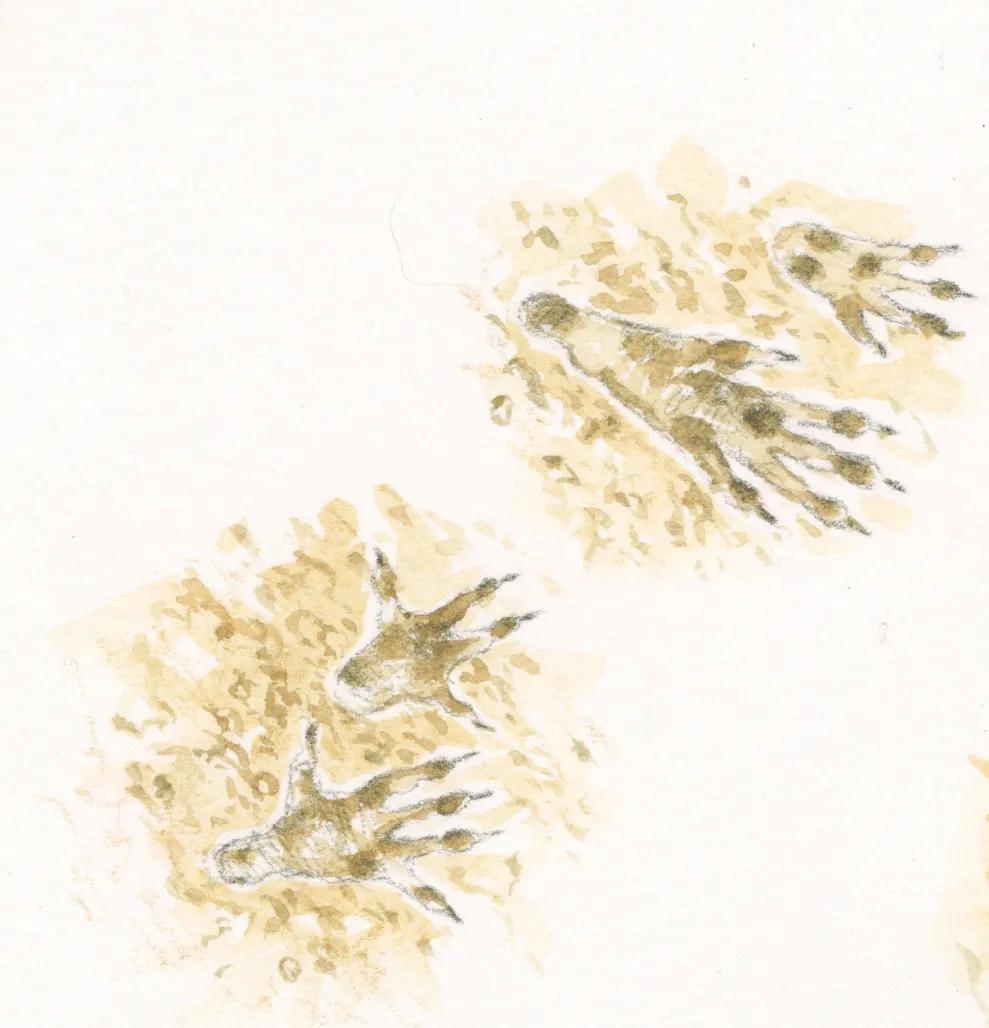
Rodent tracks show four toes on the forefeet. Hindfeet show five toes and a long heel. Water voles are similar, but have more splayed toes and a short heel. 1.8-2.5cm, hindfeet 3.3-2.8cm.
Mink tracks
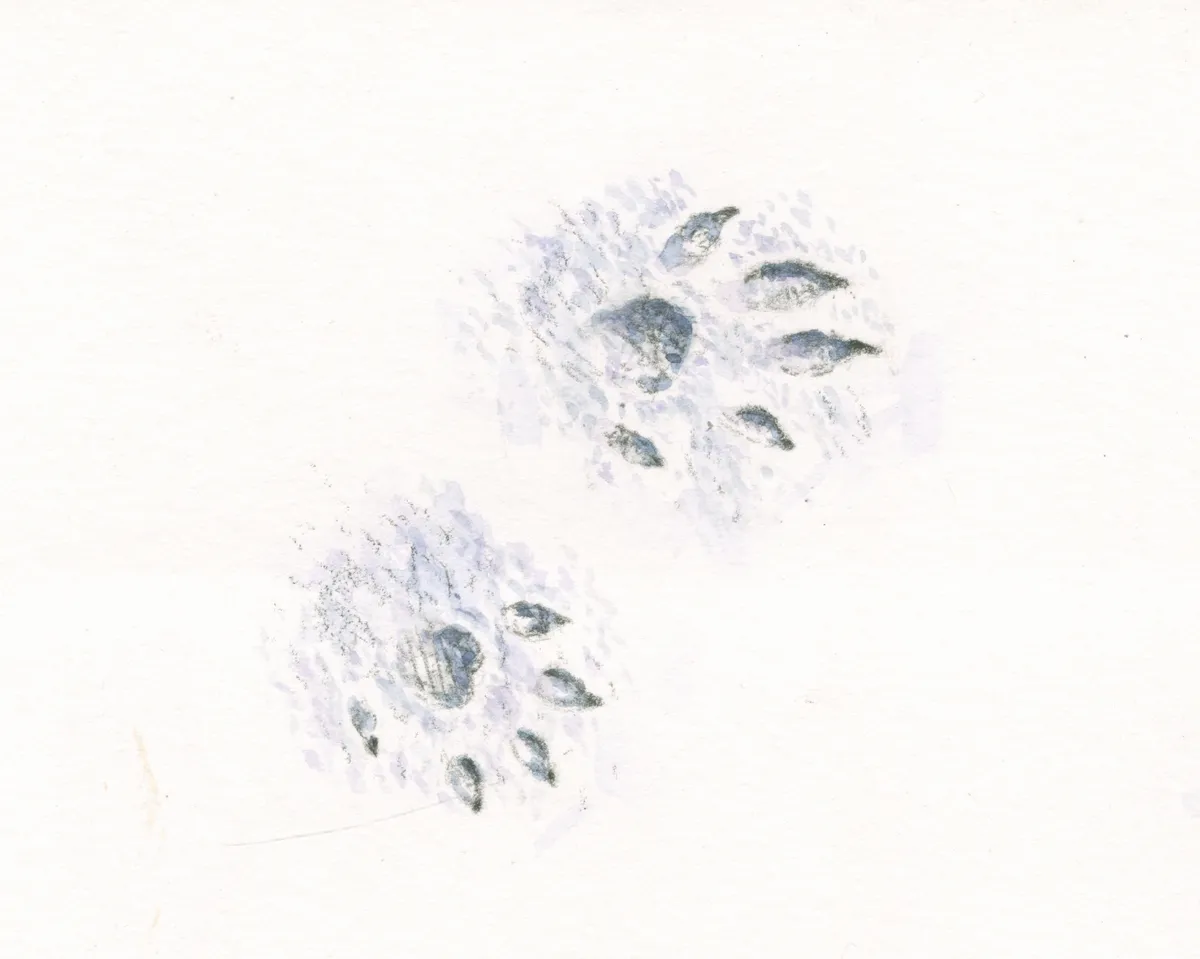
Much smaller than those of the otter, less rounded and more star-shaped. The claws are longer and usually make a sharp imprint beyond the digits. 3-4.5cm long, 3.5-4cm wide.
Illustrations credit: Brin Edwards
More wildlife guides:
